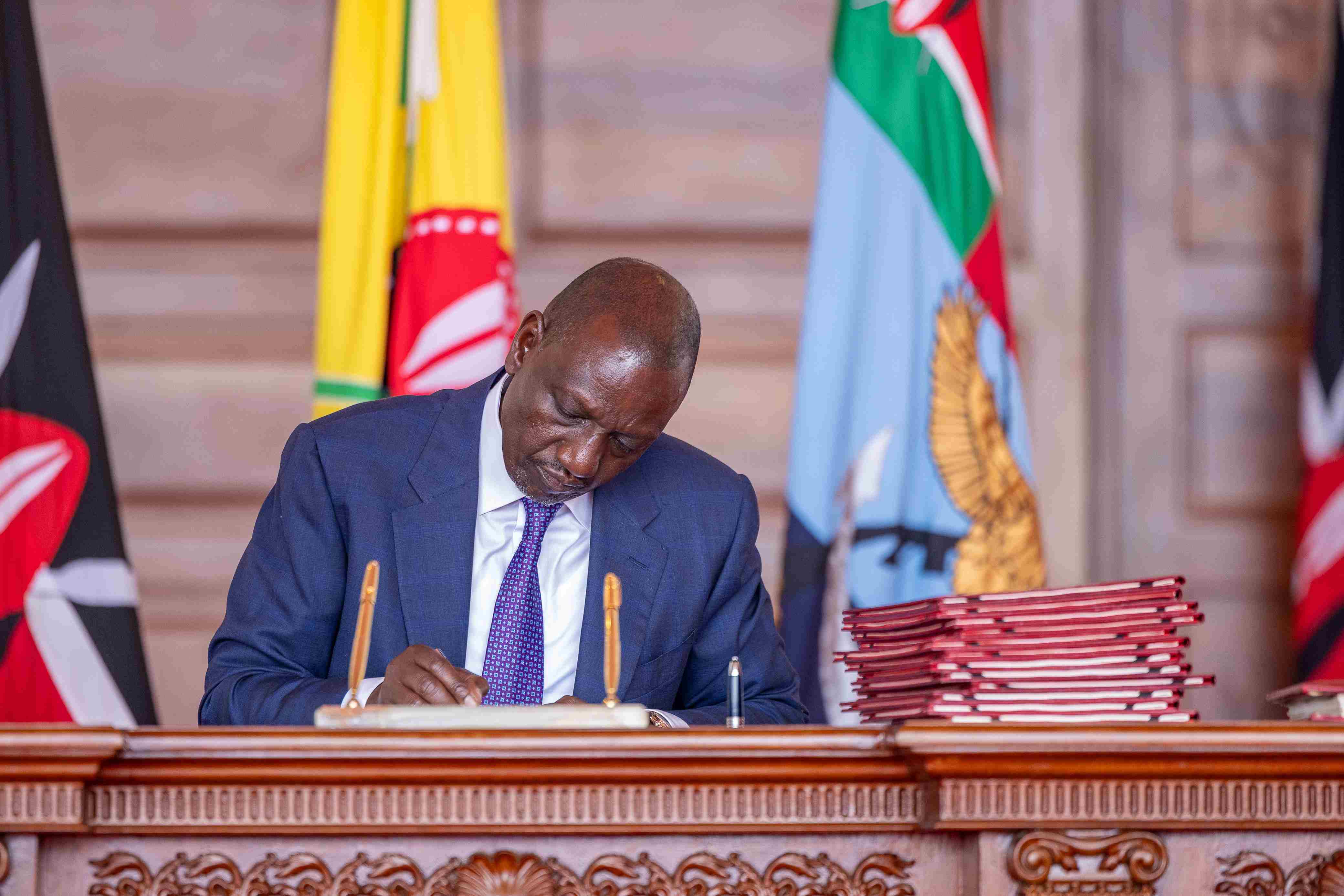High Court petition filed to halt Ruto's Finance Act, citing economic hardship

In a petition filed under urgency, Godfrey Musania wants a conservatory order stating that the finance law, which President William Ruto signed on June 26, will hurt Kenyans financially.
A petition has been filed at the High Court seeking to block the implementation of the Finance Act 2025, citing that it will overburden Kenyans.
In a petition filed under urgency, Godfrey Musania wants a conservatory order stating that the finance law, which President William Ruto signed on June 26, will hurt Kenyans financially.
More To Read
- Treasury reports fastest tax growth in two years amid July protests
- Businesses reeling: Nairobi faces massive losses after June 25 memorial unrest
- Construction industry braces for higher costs as new taxes kick in
- 16 killed in June 25 memorial protests, most by police – Amnesty International
- New tax rules, spending plan take effect after Ruto assents to three key Bills
- We are forgotten: Erickson Mutysia’s mother makes heartbreaking plea for justice
Musania also wants the court to determine that the enactment and implementation of the Act violates the Constitution. He wants the court to declare that all the sections introduced at the committee stage without public participation are unconstitutional.
"An order to suspend implementation of the contested sections of the law, and to have Treasury Cabinet Secretary John Mbadi, Attorney General and KRA shoulder the cost of the case," he argues in court documents.
The petitioner cites the removal of Value Added Tax (VAT) exemptions on essential products such as mosquito repellents and construction materials.
He argues that by deleting VAT exemption for mosquito repellents, the government was reversing the gains made against malaria.
"The implementation of the impugned provisions commenced on July 1, 2025, and unless restrained, will continue to cause irreparable harm to the public, including increased cost of living, denial of access to health products and violation of economic and proprietary rights," Musania argues.
The petition notes that on April 30, Mbadi presented the Bill to the National Assembly proposing amendments to several revenue laws, including the Income Tax Act, VAT, the Excise Duty Act and the Stamp Duty Act.
The suit states that the changes were passed on June 26 and became law five days later.
He accuses the National Assembly of failing to conduct meaningful public participation, citing Sections 62 and 65 of the Act as some of the clauses that were inserted without involving the public.
According to him, section 65 meant that products such as tiles, sinks, wash basins and iron would fetch more taxes.
"Lack of public participation violates the Constitution and renders the impugned provisions of the Finance Act, 2025, constitutionally invalid for failure to comply with the procedural requirements established in law," says the suit.
If the conservatory orders sought are not granted, millions of Kenyans stand to suffer irreversible harm, including cost of living, health risks and arbitrary deprivation of property," says the suit papers.
CS Mbadi, the Attorney General and the Kenya Revenue Authority have been named as the respondents in the suit.
Top Stories Today













































